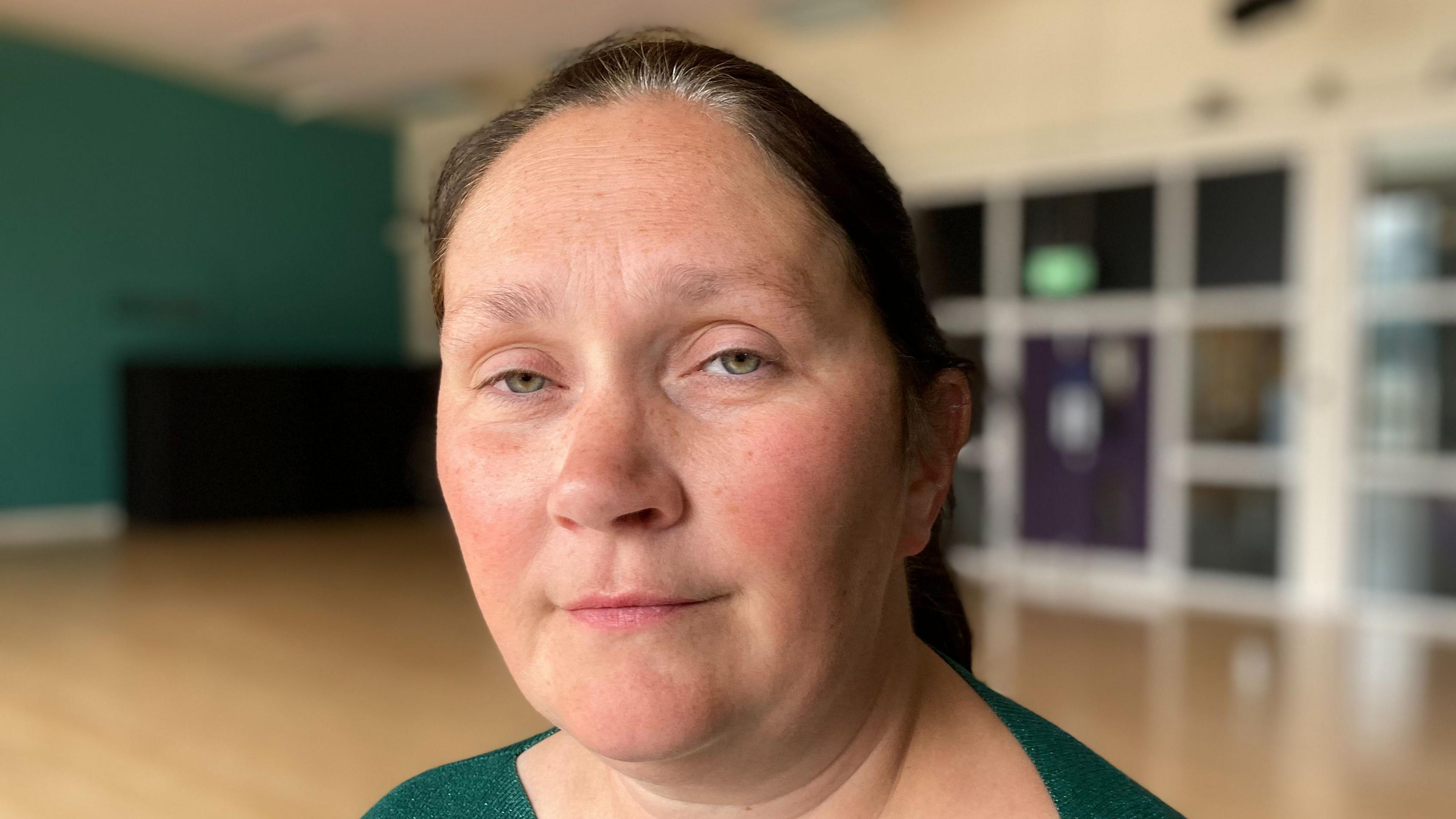Not enough officers to tackle violence against women
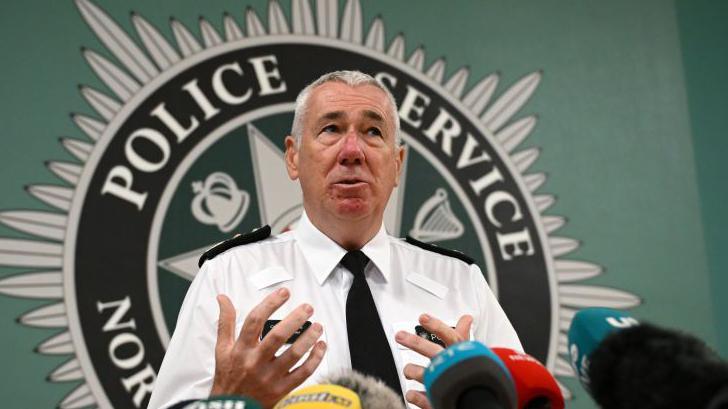
Mr Boutcher has repeatedly called for additional funds since becoming chief constable just over a year ago.
- Published
Chief Constable Jon Boutcher has warned that the inadequate number of police officers is affecting his service's ability to deal with violence against women and girls (VAWG).
The Police Service of Northern Ireland (PSNI) currently has around 6,300 officers - the lowest number in its 23-year history.
He told a Policing Board meeting in Belfast that he is "of the view our effectiveness has and continues to suffer significantly".
Since 2020, 24 women have been violently killed in Northern Ireland.
'More resources'
During a policing board meeting on Thursday, Boutcher repeated calls he has made for additional funds since becoming chief constable just over a year ago.
He recently submitted a "recovery programme" to the Department of Justice (DoJ), which aims to lift officer numbers to 7,000 by 2028.
The move would likely cost about £80m.
The DoJ funds the PSNI using its allocation of Stormont's block grant.
He told the board: "We need more resources or there will be high harm crimes committed that could otherwise be prevented.
"We continue to work tirelessly to ensure that women and girls can live their lives free from fear, intimidation and harassment.
"But we need the officers to do this."
He pointed out that Stormont's draft programme for government made tackling violence against women and girls and safer communities priority issues.
"Let me again be clear.
"We no longer have the resources to adequately deliver against these priorities," he added.
'Breaks the cycle'
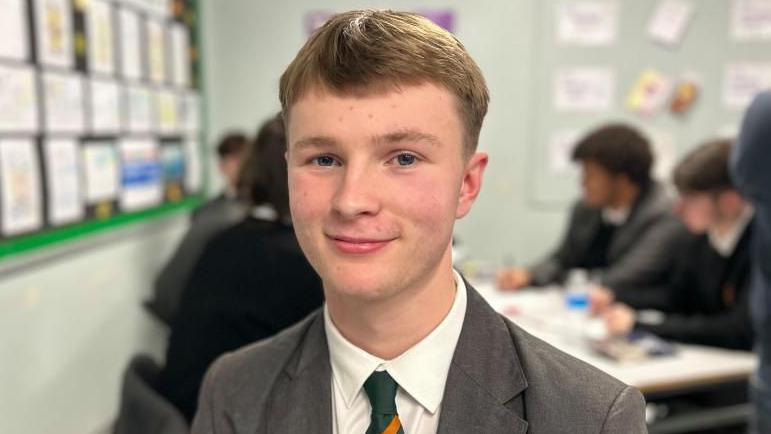
Michael said it was important young people are educated on these issues
The announcement comes as schoolboys in west Belfast have been learning about how to recognise and tackle violence against women and girls.
Michael, a student at St. Mary’s Christian Brothers Grammar School, said "everyone has a responsibility to protect women", adding it is important young people are educated on these issues.
"I’ve seen things happen to women in public transport systems, or just walking down the street."
"We need to be the generation that breaks the cycle," he continued.
'We all have a responsibility'
The training, delivered by White Ribbon NI, an organisation that seeks to end VAWG through awareness and education, included discussions on the attitudes and beliefs that can lead to male violence against women.
The session was the first time the group has been invited to run a session at an all-boys school in Northern Ireland.
It involved case study work, learning safe ways to intervene in concerning situations and being given techniques on how to manage disclosures by a victim.
"These case studies are relatable. We all have a responsibility to protect everyone," said Michael.
"We need to be the generation that breaks the cycle, as we’ve seen recently with the wave of murders that happened against women, especially in the domestic place."
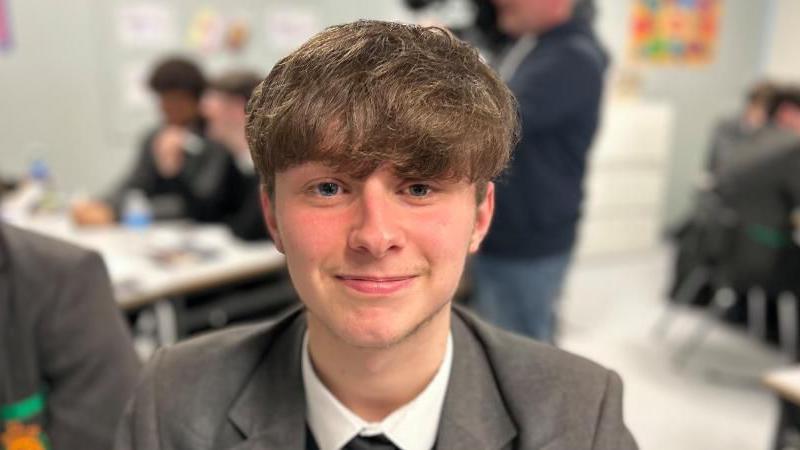
Corey said it is important to keep talking about VAWG
The programme taught pupils safe ways to raise concerns about misogynistic attitudes among peers or with people in wider society.
Another student, Corey, said learning how to address people who are being misogynistic or aggressive towards women has been "truly important".
"It is tough to stand up to your friends, but personally I think it’s more tough to stand up to people you don’t know," he added.
"We’ve been talking about women we know, statistics about how much women are affected by violence, and we have been having very open discussions, which makes it relatable to everyone.
"By hitting close to home, hitting close to us, we understand it’s really important to talk about things."
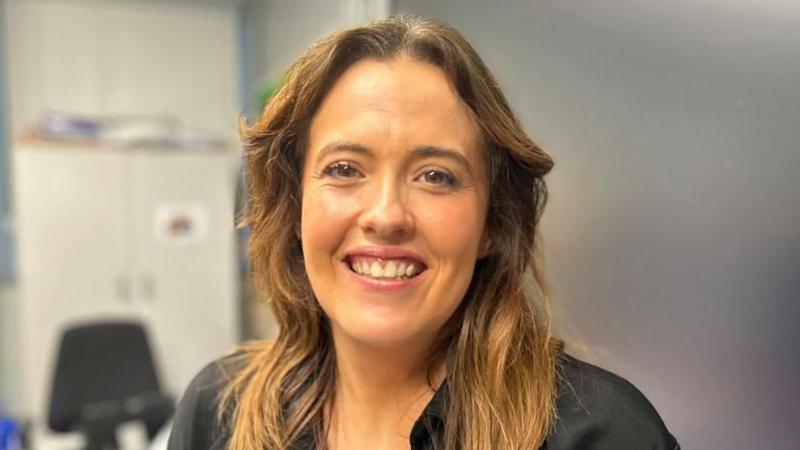
Tahnee McCorry is the founder of White Ribbon NI
Education being used as a method of tackling violence against women and girls has been encouraged by campaigners and a Stormont strategy alike.
In 2023, the Stormont action plan defined violence against women and girls as ranging from "everyday misogynistic attitudes and damaging social norms to harmful unwanted behaviours and serious criminal offences" and said children should be taught about healthy relationships.
In the same year, a district judge also said children and young people should be educated about domestic violence in school.
'Our boys stepping up'
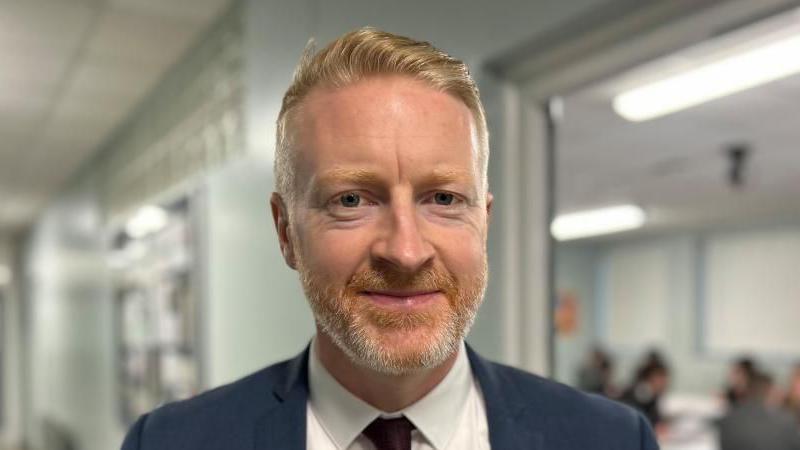
Brendan McComb is the principal at St Mary’s CBGS
Tahnee McCorry, founder of White Ribbon NI, said the boys have "a massive role to play in ending violence against women and girls".
"The strategic framework to end VAWG has been launched, but it will be nothing but a pile of pages on a desk or a file on a computer if they don’t put their all behind it."
She said: "They are the generation which can make change, and we need men and boys to step in and be part of the solution.
"Hopefully we’ve given them and equipped them to be able to do that."
The programme is called Listen Learn Lead.
"It’s about listening to the voices of women, learning about the culture which has allowed VAWG to continue," said Ms McCorry.
"Giving bystander intervention techniques to be able to challenge the ideas and attitudes which keep violence against women and girls in everyday scenarios."
The group hopes to expand the programme and teach it in more schools across the country.
Brendan McComb, principal at St Mary’s CBGS, said being the only all-boys grammar school in west Belfast "comes with a sense of responsibility and leadership".
"It’s great to see our boys stepping up," he said.
Related topics
- Published6 November 2024
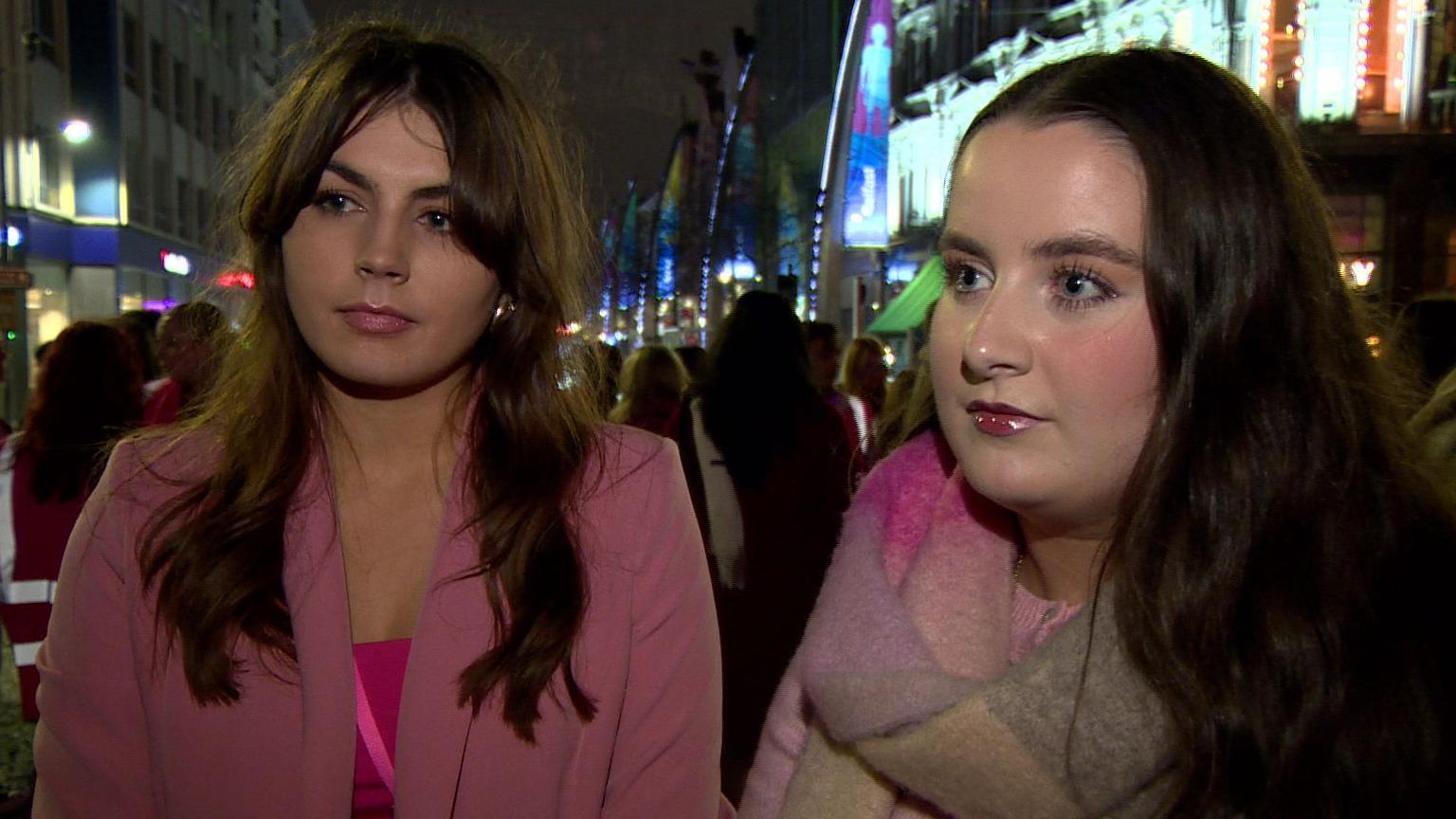
- Published16 September 2024
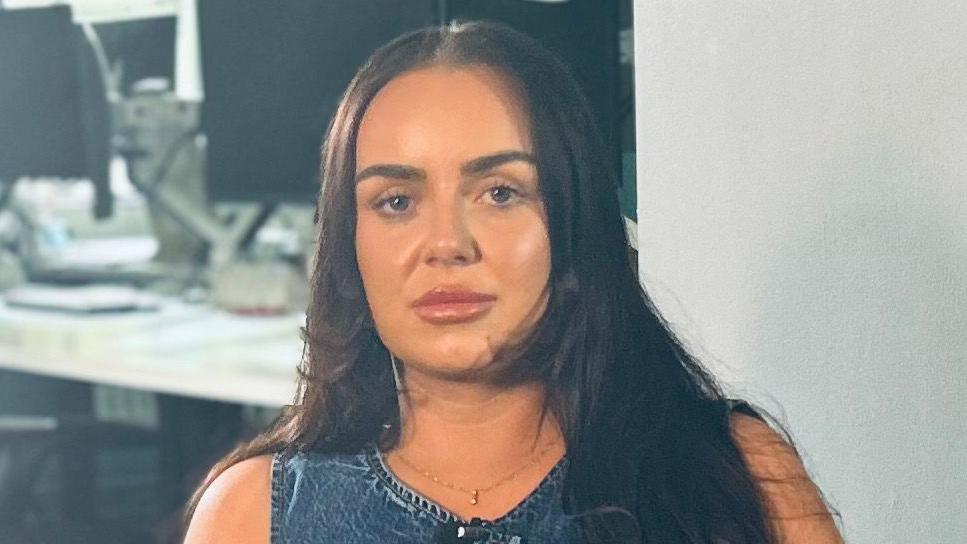
- Published21 October 2024
